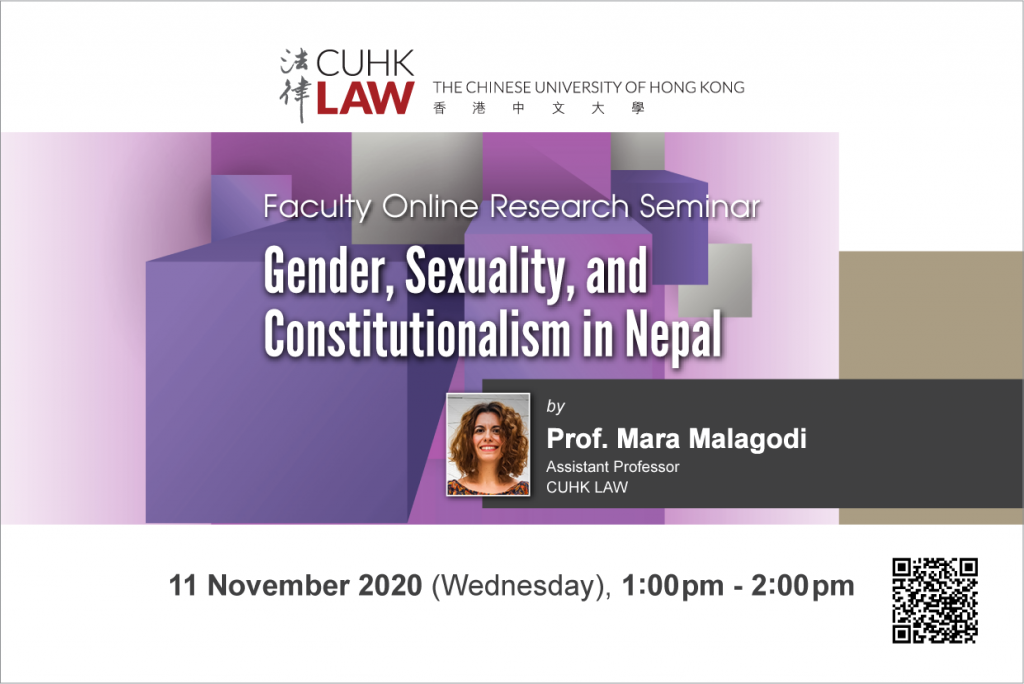An inner contradiction in matters of gender equality lies at the heart of the text of the 2015 Constitution of Nepal – the country’s seventh. On the one hand, the Preamble contains an explicit commitment to ending all forms of discrimination, including ‘gender discrimination’. This commitment manifests itself through an impressive array of rights and affirmative action measures for women and sexual and gender diverse people (SGDP), ’pink quotas’ for women’s political representation at different governance levels, and the provision for citizenship documents based on self-identification of gender. On the other hand, the Chapter on Citizenship features explicit forms of gender-based discrimination against Nepali women, who face constitutional restrictions – in clear violation of Nepal’s international legal obligations as evinced by the proceedings of the CEDAW Periodic Review – on passing citizenship to their foreign spouses and offspring conceived from the union with a foreign man. With regard to international aspects of constitutional processes and/or provisions, Nepal’s constitutional treatment of women and SGDP reflects a unique combination of provisions drawn from international law, especially the Convention on the Elimination of All Forms of Discrimination Against Women (CEDAW), the codification of the outcomes of the extensive pro-women and SGDP developments in Nepal’s post-1990 Supreme Court-level case law on gender equality, and the significant diversity of representation in both Constituent Assemblies. However, the issue of gender-based discrimination in matters of citizenship represents a clear instance of divergence from global constitutional practice and international human rights standards, which can only be explained in light of Nepali political elites’ concerns with nation building and the preservation of existing social hierarchies. This is not to say that Nepal is unique or alone in discriminating against women in this area of law, but it is significant that a UN-supported constitution-making process that took nine years has produced a constitution so clearly in breach of international legal standards such as CEDAW and ICCPR. As such, the enduring gender-based discrimination in matters of citizenship ought not to be read simply as a stain on an otherwise progressive document to be explained away by the peculiarities of Nepal’s geo-strategic positioning, and justified by the fact that many other countries feature similar discriminatory citizenship regimes. The Chapter on citizenship in Nepal’s new constitution reflects a long-standing view of the Nepali nation in which gender plays an integral role in its creation and upkeep. This explains why this framework was so difficult to remove even with the extensive international assistance that Nepal received during the constitution-making process. In this respect, judging from the recent experiences of UN-supported constitution-making processes—including those of Nepal and Sudan—it would seem that national ownership remains the absolute priority for UN actors offering assistance to constitution-making processes, even at the cost of noncompliance with international human rights standards.
About the speaker: Prof. Mara Malagodi
Register here by 12 noon, 10 November 2020 to attend the event.

0 Comments